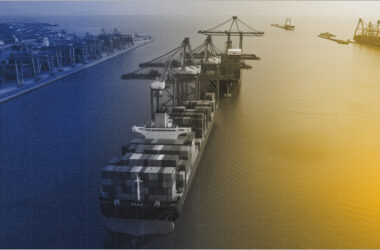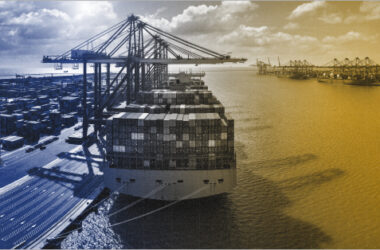Marine transportation is an essential part of the global and domestic trade network, and businesses in India rely heavily on the safe movement of goods by sea, road, rail, or air. However, transportation is fraught with risks, including theft, damage, accidents, and natural disasters. To safeguard against these uncertainties, Single Transit Insurance, also known as Marine Transit Insurance, provides a critical safety net.
In this blog, we will cover everything you need to know about Marine Single Transit Insurance, its key features, why it is important, and how to choose the right policy for your business in India.
Marine Single Transit Insurance: Important Features
A Marine Single Transit Insurance policy is a type of insurance policy designed to cover a single journey or transit of goods from one location to another. This type of Marine Insurance Policy is suitable for businesses that ship goods infrequently or on a per-shipment basis. This insurance policy offers financial protection against risks that might arise during the transportation of goods, whether by sea, air, rail, or road.
Unlike an open Marine Insurance Policy, which covers multiple shipments over a period, a single transit policy in Marine Insurance is specifically tailored for a one-time shipment, whether by sea, land, or air.
Key Features of Marine Single Transit Insurance
- Scope of Marine Insurance Coverage
Single Transit Insurance typically covers:
- Loss or damage to goods due to accidents during transit.
- Theft or pilferage during the journey.
- Natural calamities such as storms, earthquakes, or floods.
- Man-made risks, including strikes, riots, or terrorist acts (if specified in the marine transit policy).
- Types of Goods Covered
This insurance policy covers a wide range of goods, such as:
- Raw materials
- Finished goods
- Machinery
- Perishable goods (requires special clauses)
- Hazardous materials (subject to compliance with national and international safety regulations)
- Modes of Transport
This Marine Single Transit Insurance policy applies to goods transported by:
- Sea (marine cargo)
- Air
- Rail
- Road
- Inland waterways
- Flexibility
This marine transit policy can be customised based on:
- The value of the goods.
- The specific risks involved in the transit route.
- The type of transportation used.
- Single Transit Insurance Policy Duration
The Marine Insurance coverage typically begins when the goods leave the point of origin and ends when they reach the destination.
Why is Marine Single Transit Insurance Important for Your Business?
The marine single transit policy provides essential protection for businesses involved in the transportation of goods, safeguarding against the financial risks associated with shipping. Here are certain important points explaining its importance for businesses in India:
- Protection Against Financial Loss
Transportation of goods is exposed to various risks such as theft, damage, or loss due to accidents. This transit policy in Marine Insurance ensures businesses are financially compensated for such losses, minimising the impact on their profitability.
- Mitigation of Transportation Risks
India’s vast geography and diverse climatic conditions pose risks like road accidents, bad weather, or flooding. Marine Insurance acts as a safety net against these unpredictable events, providing confidence in the supply chain.
- Compliance with Trade Requirements
For certain contracts, especially in international and interstate trade, Marine Insurance policy coverage may be mandatory. This helps businesses comply with legal and contractual obligations, avoiding penalties or disputes. For example, it is often required under Incoterms (International Commercial Terms) in global trade contracts.
- Customisable Coverage
Businesses have different shipping needs based on the type of goods, transport mode, and route. This transit policy in Marine Insurance can be tailored to cover specific risks, ensuring adequate protection for each shipment without overpaying for unnecessary coverage.
- Affordability for Infrequent Shippers
Not all businesses need continuous shipping coverage. For those shipping goods occasionally, a single transit policy offers a cost-effective option compared to annual policies, covering only the specific shipment.
- Enhanced Business Credibility
By insuring shipments, businesses demonstrate a commitment to safeguarding goods and honoring their contractual obligations. This builds trust with customers, suppliers, and partners, enhancing the company’s reputation.
- Peace of Mind
Uncertainties in transit can cause stress and disrupt operations. With this marine transit insurance coverage in place, businesses can operate with confidence, knowing they are protected against unforeseen events.
- Comprehensive Risk Coverage
Single Transit Insurance often covers a wide range of risks, including:
- Accidental damage.
- Theft or pilferage.
- Natural calamities (e.g., cyclones or floods).
- Human risks like strikes, riots, or terrorist activities.
This comprehensive protection ensures businesses are shielded from most potential transit-related threats.
Factors to Consider Before Buying Marine Single Transit Insurance
- Nature of Goods
Understand the type of goods being shipped. High-value, fragile, or perishable items may require additional Single Transit Insurance coverage.
- Mode of Transport
Evaluate the risks associated with the chosen mode of transport (sea, air, rail, or road) and ensure the Marine Insurance Policy covers them adequately.
- Geographical Scope
Check whether the marine transit policy covers the specific transit route and includes international or domestic shipments.
- Marine Insurance Policy Exclusions
Be aware of insurance policy exclusions such as:
- Delay in transit (unless covered by an additional clause).
- Loss due to poor packaging.
- War, terrorism, or nuclear risks (usually excluded unless specified).
- Ordinary wear and tear or gradual deterioration.
- Marine Transit Policy Terms and Conditions
Carefully read and understand the terms of the insurance policy, including the coverage limits, deductibles, and claim procedures.
- Reputation of the Insurer
Choose a Marine Insurance provider with a strong reputation for reliability and excellent claim settlement history.
- Premium Cost
Ensure that the marine transit policy fits within your budget while providing adequate coverage.
The Process of Filing a Marine Single Transit Insurance Claim
In case of a loss or damage during transit, follow these steps to file a marine transit policy claim:
- Notify the Insurer: Inform the insurance provider immediately after the incident, ideally within the specified time frame outlined in the policy.
- Provide Evidence: Submit required documents such as the marine transit policy, invoice, bill of lading, photographs of the damage, and any additional supporting evidence (e.g., marine surveyor’s report if applicable).
- Survey and Inspection: The insurer may appoint a surveyor to assess the extent of the loss or damage.
- Claim Settlement: Once verified, the insurer will process the claim and provide reimbursement based on the policy terms.
How to Choose the Right Marine Single Transit Insurance for Your Business
- Assess Your Requirements
Identify the type and value of goods, the mode of transport, and the risks associated with the transit route.
- Compare Single Marine Transit Policies
Research and compare Single Transit Insurance policies from different insurers. Pay attention to the coverage, exclusions, and premium costs.
- Seek Professional Advice
Consult with marine insurance brokers or advisors who specialise in logistics and trade to understand the nuances of the Single Transit Insurance Policy. This will ensure that the policy meets your business needs, especially if your shipments involve international trade or hazardous materials.
- Verify the Insurer’s Credentials
Check the insurer’s claim settlement ratio, customer reviews, and financial stability.
- Negotiate Customisation
Negotiate with the insurer for any additional coverage or customised terms based on your shipment requirements.
The Bottomline:
Marine Single Transit Insurance is an indispensable tool for businesses engaged in the transportation of goods. By providing financial protection against transit-related risks, it ensures the smooth functioning of supply chains and safeguards your business interests. When choosing a policy, it’s crucial to evaluate your requirements, understand the policy terms, and select a reputable insurer. With the right coverage in place, you can focus on growing your business while leaving transit risks to your insurance provider.
Invest in Single Transit Insurance today to secure your business against unforeseen challenges and ensure peace of mind for every shipment!








